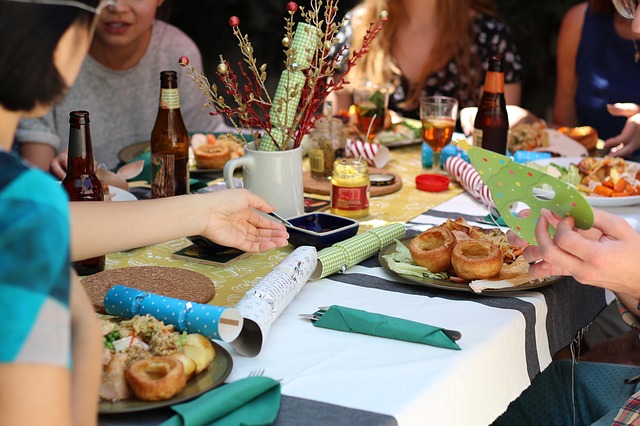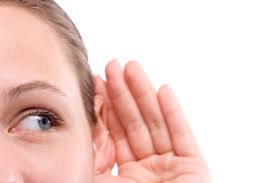-
Book Online Now - Acupuncture Solutions3900 Pebblecreek Ct #101
Plano, TX 75023972-612-4900 - 6501 Wesley St #A-1
Greenville, TX 75402903-213-3679 Learn more about…
#autumn #balance #behappy #fall #familytime #germs #healthlyliving #healthyskin #immunesystem #organs #psoriasis #seasons #sunscreen #thinkpositive acupressure acupuncture allergies anxiety coronavirus covid-19 depression diet digestion energy exercise headaches health heart herbs kidneys liver lungs meditation migraines nutrition pain pms qi sleep spring stress summer tcm Traditional Chinese Medicine winter
Safety
5 Ways to Eat Without Overeating this Holiday Season
 Moderation
Moderation
We’ve always the heard the saying to enjoy everything in moderation, and that is definitely true when it comes to holiday foods. Don’t try to deprive yourself during the holidays, it most likely won’t go over well. Having an extra holiday treat here and there won’t kill you. You’re allowed to indulge a bit, just keep portions small when it comes to holiday desserts and make sure you limit how often you eat them. Going the whole season without any treats is cruel and will most likely end in binging later, so have your guilty pleasures, just keep them in moderation.
Watch the alcohol
The holidays are a time for celebration, which most likely means more alcohol. Not only does alcohol add on empty calories, but can also lead you to eating more while drinking. If you are at a gathering, limit yourself to one or two drinks to cut down on the unhealthy cravings you might be feeling afterward.
Focus on the protein
Protein-packed foods are a great way to fill up without adding a lot of sugar and empty carbohydrates. Pack your plate with low-fat meats like turkey and chicken. If you’re vegetarian, eat more of the tofu than the side dishes that are most likely to be sugar and carbohydrate heavy.
Fill up on the water
Don’t forget about water! The holidays are an easy time to drink more sugary beverages than normal. Substitute drinks for water, and drink a lot of it. Not only is water essential for your health, but drinking a glass before a meal can fill you up more as well, preventing you from overeating.
Take your time
Eating too fast is one of the easiest ways to overeat. When you don’t give your body the chance to digest food and feel full before you stop eating, chances are you’re going to end up eating more than you want. Eat slowly and enjoy each bite to give your body a chance to catch up. This way, you’ll end up getting full faster and eat less.
Most of all don’t forget to enjoy the holidays and the delicious food that comes with it, don’t be afraid to indulge a little!
5 Steps to Improve Your Hearing
 Many of us have already experienced or will experience some amount of hearing loss. This can be due to aging or noise-induced factors. Exposure to loud sound over time can permanently damage the ears and result in hearing loss.
Many of us have already experienced or will experience some amount of hearing loss. This can be due to aging or noise-induced factors. Exposure to loud sound over time can permanently damage the ears and result in hearing loss.
If you find yourself struggling with hearing and feeling the need to turn up the TV or your music louder, you may be experiencing hearing loss. Here are five steps to improve your hearing and prevent further damage.
1. Wear protection: If you know you will be around loud noise and won’t be able to avoid it, like at a large event or while using power tools, wear ear plugs. You can find ear plugs at most grocery stores and they can severely protect your ears from damaging loud noise.
2. Limits: To keep volumes at a moderate level on devices or stereos, consider adding a volume limit. Most devices have a feature where you can set a maximum volume. This way, you won’t be able to turn your volume up to the actual maximum.
3. Give yourself a break: Research has shown that being in a quieter setting can train your ears to better focus on the quiet sounds and increase overall hearing. Try to take even just ten minutes a day and go somewhere secluded where there is not a lot of external noise and disruption.
4. Foods: These foods have been shown to improve hearing and prevent hearing loss.
Salmon and other fish: The omega 3 fats and Vitamin D found in Salmon and other like foods have been shown to strengthen the blood vessels in the ear’s sensory system, which then can improve hearing. Research has shown that adults who eat fish twice a week reduced their risk of age-related hearing loss by 42 percent.
Spinach, asparagus, beans, broccoli: These foods are high in antioxidants and folic acid. Antioxidants can help lower the risk of hearing loss by reducing free radicals in your body that can damage the nerve tissue in the ears.
Dark chocolate, oysters, cashews: Foods high in zinc like dark chocolate, oysters and nuts can improve your body’s resistance to age-related hearing loss.
5. Acupuncture: A study conducted by the College of Oriental Medicine in South Korea measured the effects of acupuncture on patients with sudden sensorineural hearing loss and found that half of the patients showed improvement in hearing after acupuncture treatment.
Acupuncture points can stimulate the strength in the auditory cortex to the brain, thus increasing the brain’s ability to react to auditory stimuli.
Learn how to be aware of the symptoms of hearing loss including difficulty understanding what people say, having to raise the volume higher and muffled sounds. If you think you are suffering from hearing loss, try these tips and contact an acupuncturist today.
Sources:
https://audicus.com/you-hear-what-you-eat-5-foods-that-can-prevent-hearing-loss-and-hearing-aids/
http://www.everythingzoomer.com/12-tips-for-better-hearing/#.VT_XA2RVhHw
http://www.howtogetbigforearms.com/health/how-to-improve-your-hearing-top-10-ways
http://www.healthcmi.com/Acupuncture-Continuing-Education-News/530-acupunctureceushearinglosskorea
http://www.healthcmi.com/Acupuncture-Continuing-Education-News/720-mrihearing
http://www.mayoclinic.org/diseases-conditions/hearing-loss/basics/symptoms/con-20027684
Save Your Summertime Skin
 Now is the time of year when the sun becomes irresistible. As tempting as it is to spend as much time as possible in the warmth of the sun, there are a few precautions to take to protect your skin from harmful rays.
Now is the time of year when the sun becomes irresistible. As tempting as it is to spend as much time as possible in the warmth of the sun, there are a few precautions to take to protect your skin from harmful rays.
Our skin is the largest organ in the body. It reflects our health and age. Today, there’s much concern about sunbathing leading to an increase in skin damage and skin cancer.
Excessive exposure to ultraviolet rays can increase the production of free radicals that can adversely affect the integrity of collagen in the skin. Over time, our skin becomes wrinkled, cracked, aged, and brittle. For smokers, the effects are multiplied.
Research suggests that skin cancer is cumulative over a lifetime. It begins with overexposure and serious sunburns during childhood.
We can’t live without the sun. Our bodies require sunlight in order to manufacture Vitamin D needed for calcium absorption, among other things. So, we shouldn’t hide from our shining star. Here are a few helpful tips and precautions to take when you’re soaking in the sun this summer.
Use sunscreen – Choose a sunscreen with a high SPF number for greater protection. Apply it onto your skin 15 minutes before you go outside. Don’t forget your nose, ears, and neck.
Time is key – Avoid sun exposure when the sun is at its highest peak in the sky, typically from about 11:00 am – 4:00 pm.
Gear up – Wear a hat with a wide brim, t-shirt, and sunglasses that filter ultraviolet rays.
Drink up – By keeping your body hydrated you can avoid dehydration and provide moisture for the skin to prevent dryness, cracking, and aging.
Pop a pill – Vitamins such as A, E, and some antioxidants help prevent skin damage from the inside. Cod Liver oil and Flaxseed oil have also been used to support skin health.
Brush it off – Before you take a shower, use a dry skin brush. This can open pores and slough off dead skin, allowing your skin to breathe easily and work more efficiently.
Keep healthy – Some medications we take may have reactions and side effects when we’re exposed to sunlight. Acupuncture may be able to provide an alternative to these medications, keeping you healthy, safely and naturally.
If you want to enjoy the sun this summer season and not worry later, practice good sun sense.
You and your skin deserve it!
Summer Time Fun and Safety
Sun Safety Tips
It’s summertime. It’s time to get outdoors and enjoy the sun.
Follow these sun safety tips to protect your skin and avoid a nasty burn.
- Cover up. Wear clothes and a hat to protect your skin.
- Find shade. Instead of spending all day under the hot, beaming sun, spend part of the day in the shade. If no shade is available, bring an umbrella or tent.
- Avoid the noon sun. Ultraviolet (UV) radiation peaks at noon, when the sun is highest in the sky. Time your fun in the sun for early morning or late afternoon when the sun is less intense.
- Wear sunglasses. Protect your eyes from UV radiation.
- Choose sunscreen wisely. Not all sunscreens are made the same. Use the tips below to pick the best sunscreen.
- Put on sunscreen before getting dressed. If you apply sunscreen around clothes, you may miss a spot.
- Apply sunscreen to all exposed skin—including your part or bald patch. Any skin can burn in the sun.
- Allow 20 minutes between applying sunscreen and going outside. This allows the sunscreen to penetrate the upper epidermis of the skin.
- Buy new sunscreen every year so the ingredients stay fresh and potent.
- Protect children, especially babies, from the sun. Their skin is extremely vulnerable.
Sun Protection Do’s and Don’ts
Do:
- Do use products with zinc, titanium dioxide, avobenzone or Mexoryl SX. These ingredients give good sun protection without penetrating the skin and entering the bloodstream.
- Do use sunscreen creams or lotions.
- Do use broad spectrum protection.
- Do use sunscreens labeled “water resistant for beach, pool and exercise.”
- Do use SPF 30+.
- Do reapply often.
Don’t:
- Don’t use products with vitamin A (retinyl palmitate). Vitamin A is good to eat but studies show it is harmful on your skin.
- Don’t use products with oxybenzone, a synthetic estrogen that can enter the bloodstream through the skin.
- Don’t use sunscreens with added insect repellent. Apply insect repellent separately. Put it on before your sunscreen.
- Don’t use sprays or powders. Sprays and powders release sunscreen particles that may not be safe to breathe.
- Don’t use SPF above 50+. High SPF numbers are misleading. They may tempt you to stay in the sun longer, exposing you to types of skin damage other than sunburn.